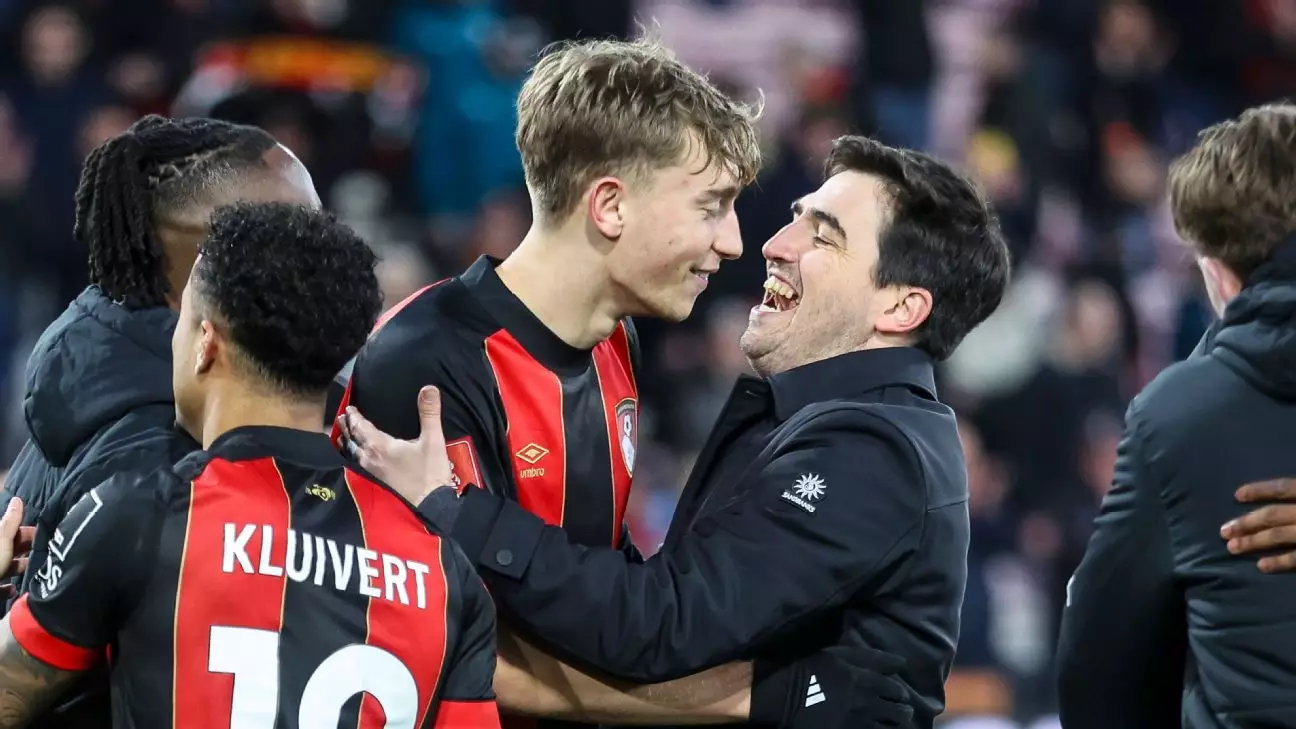The current iteration of the PFA Young Player of the Year award is arguably one of the most contradictory elements in football recognition. With eligibility tethered to a strict age cap—players must be 21 or under at the start of the season—the award fails to keep pace with the game’s rapid evolution. In an era where athletes mature quickly and gain invaluable experience before they even hit their twenties, there’s a dissonance in rewarding players who have often already amassed hundreds of games. Notably, well-known names like Bukayo Saka and Phil Foden, who are already established within the league, have dominated the award in recent years, while genuine rookies are left in the shadows.
For context, the Premier League’s version of the Young Player of the Season extends the age limit to 23, allowing for a more comprehensive consideration of emerging talents. This is where the system becomes convoluted. On one hand, it recognizes the importance of youth; on the other, it dilutes the spirit of what a “rookie” ideally should be. Contrast this to basketball’s model, where the Rookie of the Year award celebrates players stepping into the professional arena for the first time, regardless of age. The need for a similarly structured award in football is evident as we push towards a more nuanced recognition of talent in the beautiful game.
The Case for a New Approach
What football truly needs is a fresh Rookie of the Year award, one defined not by age alone, but by the debut experience within a top-tier league. The redefined eligibility criteria could focus on players starting the season as teenagers—aged 19 or under—and playing their first full Premier League campaign. This shift would honor those stepping onto the professional stage for the very first time, regardless of their previous experiences or backgrounds.
Such a transformation in awards reasoning may allow the spotlight to shine brighter on genuine potential. Many players have been blessed with incredible talent but are often overlooked because they began in a youth setup, sometimes to overshadowing expectations. Consider the likes of Kobbie Mainoo or Lewis Hall—young players on the cusp but not eligible due to technicalities. Retaining their impressive contributions despite their exclusion indicates a system ripe for reform.
Spotlight on Emerging Stars
In embracing this new Rookie of the Year philosophy, we open the door to a legion of players coming through who are at that pivotal juncture of their careers. Players like Hamari Scarles, who recently broke into West Ham’s lineup and made significant defensive contributions, stand as testaments to untapped potential. Similarly, players from various lower-league teams or international leagues, such as Yoro from Lille, epitomize resilience. Despite injuries, he emerged as a cornerstone for Manchester United, helping to redefine expectations of young arrivals in the English top flight.
Another compelling player to watch is Tottenham’s Gray, who has taken on multiple positions amidst a tumultuous season for Spurs. His versatility only adds layers to his profile, proving that adaptability can be as valuable as raw skill. Similarly, the likes of myles Lewis-Skelly at Arsenal shifted perceptions this season, moving from a central role to successfully taking on left-back responsibilities. Such examples enrich the narrative around young talent, blending sheer athletic prowess with tactical intelligence.
From Promising to Prolific
Emerging from this reimagined narrative, Southampton’s Dibling serves as a clarion call for young talents. By leading in average meters gained, he showcased the very essence of what the new Rookie of the Year should honor—fearlessness and influence on the pitch, even amidst the tribulations of a relegation battle. Dibling, with diminishing returns statistically, still leaves an indelible impact just by being an active force in tough circumstances.
Man United’s Nwaneri has shed the weight of prodigious expectations to bloom in his own right, shifting into different attacking roles and securing notable finishes along the way. His ability to seamlessly adapt not only showcases his potential but reshapes how we assess youth players in their developmental phases. The multifaceted evaluations of players like Nwaneri, Dibling, and others successfully telling their stories of struggle and resilience reflect a deeper narrative about young talent.
The Future Looks Bright
The excitement surrounding the prospects emerging on the pitch is contagious. The reworked Rookie of the Year concept revitalizes the recognition of youth in a sport often steeped in tradition. By highlighting players who are genuinely new to the Premier League and watching them evolve can foster a deeper connection among fans and clubs alike. The potential stars of tomorrow deserve an accolade that resonates with their journey, celebrating not just their talent but their bravery in stepping into the spotlight. As we witness their journeys unfold, it becomes increasingly clear that rethinking how we appreciate youth can enrich the entire football narrative.

Leave a Reply